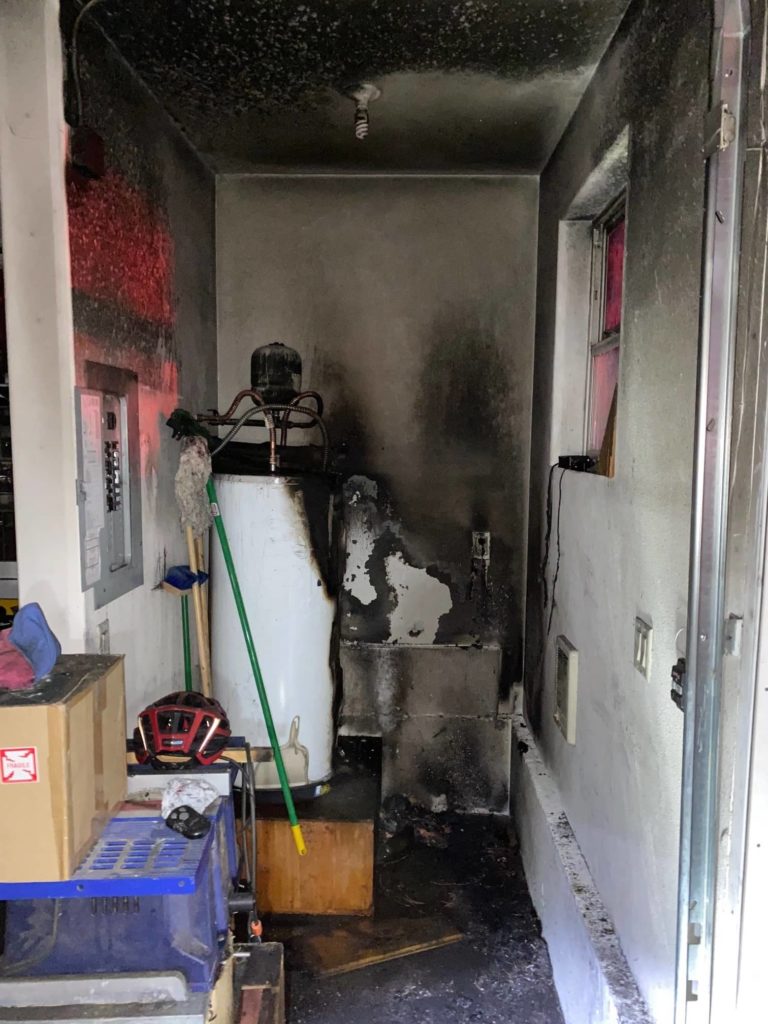Bend Fire Department responded to a call for assistance Tuesday night when a passerby noticed a smoke alarm sounding in a home on NW Delaware Ave. No one was home at the time. When the engine arrived they began to search the area for the source of the alarm. It was determined that the alarm was coming from the detached garage and ADU behind the home. The crews attempted to enter the garage and found the building full of smoke and a small fire in the garage. More crews were quickly dispatched to what was now a structure fire.
Ultimately the fire crews found a small fire in the garage that had been partially extinguished when the adjacent water heater failed and sprayed water on the fire. The building was cleared of smoke and fire fully extinguished. The fire was caused when an older electric bike was plugged in for charging. The lithium battery appears to have failed and caught fire. Lithium batteries are susceptible to fire when they get damaged, wet, over charged or as they age and start to malfunction.
Be sure to follow all manufactures guidelines on charging lithium batteries and devices with those batteries. If the battery gets damaged or wet, do not charge again and replace the battery. Be sure not to over charge your batteries by taking them off the charger once they are fully charged. As soon as you start to notice the battery to not operate like normal; discontinuing charging and using it immediately. If the batteries do catch fire, call 911 immediately. These fires can be hard to extinguish due to the metals burning.
Deschutes County Solid Waste, operators of Knott Landfill, remind everyone to not dispose lithium batteries in the regular trash. These batteries are best recycled to prevent them from catching fire in the process of being disposed or placed in the landfill. Lithium batteries are recyclable at most retailers that sell them (home improvement stores, electronics stores, etc) and at the Recycling Centers at Knott Landfill and transfer centers.
More information about lithium battery safety: https://www.nfpa.org/-/media/

